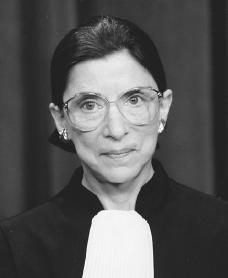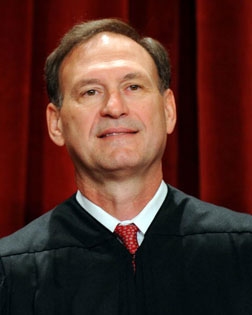"Hello, kind sir. I wish to purchase some of your finest crack."
"Certainly," said King "Coming right up, sir."
King and the patron completed their business, and both went away happy. Only the patron wasn't quite who he said he was. In fact the patron was a member of the local law enforcement brigade, and the purchase was being watched by others in the brigade.
"Apprehend that dastardly villain!" Called the head of the brigade, after the purchase was made. Uniformed officers then came roaring up to King in their cars, sirens and lights on.
"Zounds!!" Exclaimed King. "I have more drugs in my dearest love's apartment, above! I must quickly dispose of it!"
Up to the apartment ran King, followed closely by the officers.
"You'll not get away from us this time!" The officers called. But King was very fast, and he arrived at the apartment just before the officers did. King slammed the door behind him.
"You loose, Coppers!" thought King.
The officers heard the door close and ran to the source of the sound, but there were TWO doors.
"What ever are we to do?" The officers wondered.
The smartest officer there, Good Officer Cobb said in his bravest voice
"Fellows, as you know I have the keenest sense of smell in all of law enforcement."
The other officers nodded in agreement, for Good Officer Cobb was well known for his super sniffer.
"I smell the unmistakable aroma of marijuana smoke coming from the door to the left!" Said Good Officer Cobb. "Surely, this is where that villain, King went."
The other officers agreed with Good Officer Cobb, because he was the smartest and best officer in all of the brigade. He must be right!
Good Officer Cobb banged loudly on the left door. "This is the Police!! Let us in!!"
"The Police!!" Said the occupants of the apartment on the left. "We can't let them get our drugs! What shall we do?"
In the apartment was King's dearest love, King, and King's dearest love's marijuana smoking friend. King had told them just what to do if Good Officer Cobb came knocking on the door.
"We must destroy our drugs!" Said King "Quickly, for we know that the great 4th Amendment keeps our persons, property, and papers secure from government searches and seizures without a warrant!"
"Just so!" Exclaimed King's dearest love's marijuana smoking friend. "I am glad King is here to teach us to be so wise in the ways of the law."
And with that they began to destroy the drugs.
"Great Scott!!!" Shouted Good Officer Cobb, "Fellows, as you know I have the keenest sense of hearing in all of the land." The officers nodded in agreement, for Good Officer Cobb was well known for this super ears. "I hear those inside destroying the evidence we need to convict them of their crimes!"
"Zounds!" Cried the other officers. "Whatever shall we do? If they destroy all of the evidence, how will we convict them of their miss-deeds??"
"Fear not!" Said Good Officer Cobb, "We shall break down the door and catch them before they destroy all of the evidence."
"But Good Officer Cobb," said one of the officers "Is that legal? We all know that the hated 4th Amendment keeps scum like that within secure in their person, property, and papers from searches without a warrant from government officials, such as us."
"Precisely right." Said Good Officer Cobb, "But those within did not tell us that we may not come in. Therefore we can make entry in to the apartment."
This made perfect sense to the other officers, and why would they question Good Officer Cobb? He is so smart and so good that he would never abuse the powers that he had been granted by the government.
So with a CRASH, Good Officer Cobb and the others broke down the door and arrested those inside before they could destroy the evidence.
"We have you now, King!" Exclaimed Good Officer Cobb
"So you say now, Good Officer Cobb, but I believe YOU have violated the 4th Amendment! Take me to the magistrate!"
And off they went.
What do you think the Magistrate said? The blessed 4th Amendment says:
The right of the people to be secure in their persons, houses, papers, and effects, against unreasonable searches and seizures, shall not be violated, and no Warrants shall issue, but upon probable cause, supported by Oath or affirmation, and particularly describing the place to be searched, and the persons or things to be seized.
What did happen? The Kentucky Supreme Court stated that Cobb, thought not acting in bad faith, was incorrect in breaking down the door and that the search was illegal. On appeal to the Supreme Court of the United States, in an 8-1 vote, the court found that in certain circumstances, the entry was legal, thus overturning the Kentucky Supreme Court decision.
The only dissenting justice was... Ruth Bater-Ginsburg... In this decision I would expect the lone dissenter to be Clarence Thomas or Sam Alito, or some other Constitutionalist, certainly not Ginsburg, who would rather look at European law than the Constitution. However, in this instance, I find myself agreeing almost 100% with Justice Ginsburg. In her dissenting remarks Justice Ginsburg says:
The Court today arms the police with a way routinely to dishonor the Fourth Amendment’s warrant requirement in drug cases. In lieu of presenting their evidence to a neutral magistrate, police officers may now knock, listen, then break the door down, nevermind that they had ample time
to obtain a warrant. I dissent from the Court’s reduction of the Fourth Amendment’s force.
The Fourth Amendment guarantees to the people “[t]he right . . . to be secure in their . . . houses . . . against unreasonable searches and seizures.” Warrants to search, the Amendment further instructs, shall issue only upon a showing of “probable cause” to believe criminal activity is afoot. These complementary provisions are designed to ensure that police will seek the authorization of a neutral magistrate before undertaking a search or seizure. Exceptions to the warrant requirement, this Court has explained, must be “few in number and carefully delineated,” if the main rule is to remain hardy.
About the decision, Justice Samuel Alito wrote the following:
Occupants who choose not to stand on their constitutional rights but instead elect to attempt to destroy evidence have only themselves to blame for the warrantless exigent-circumstances search that may ensue.
Typically Sam and I are on the same page, but this is just false. All he need do is look at the abuses of the warrantless searches based on "probable cause" to see that this additional warrentless search will surely be abused to an even greater extent. What kind of training does one need to determine the difference between the sound of evidence being destroyed and the sound of furniture moving?
"Why did you break open the door to Grandma's house Good Officer Cobb?"
"We heard sounds of evidence being destroyed inside."
"Was evidence being destroyed?"
"No, Grandma was moving a table, but we did find that she had some beer that she bought out of state in her refrigerator, so we took her in for bootlegging."
It is laughable that people would even know to immediately invoke their 4th amendment rights when confronted by the Police in any situation, let alone when they are banging on the door looking for someone. Let us use a very common example to illustrate the point.
A police officer stops you walking down the street and asks to see your ID. What do you do? Do you inform the officer that you invoke your 4th amendment rights, simply state your name then ask why you were stopped? Your name is all you are required to give to the police during an encounter, and the Police are required to give you a reason as to why you are being detained.
OR do you simply hand over you ID and answer any questions that the officer may have?
If the Police are banging at your door demanding entry, do you inform them that you invoke your 4th amendment rights, or do you just let them in?
The vast majority of the public don't know what the Constitution is, let alone their rights under the 4th Amendment. It may be very plain to Justice Alito as to what to do in this situation, however for the rest of the population, in the real world, this decision will only lead to greater and greater abuses, and the further eroding of our rights.
Bad call SCOTUS, bad call indeed.
 |  |
| My hero?? | The villian??? |
Clarification at Legal & Liability Risk Management Institute
Write up, and Justice Alito's Comments at Reason Magazine
No comments:
Post a Comment